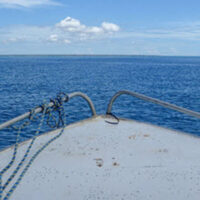What Are The Three Most Common Boat Accidents?

Here in Florida, the number of boating accidents increased significantly in 2020. Lack of training was a factor in almost 70 percent of these cases. Largely to promote tourism, the Sunshine State has some of the most relaxed boater operation requirements in the country. Furthermore, for many people, alcohol consumption and boat operation go hand-in-hand. Alcohol impairs judgement and slows reactions.
If you or a loved one was hurt in a boat accident, a Tampa boat accident attorney can usually obtain substantial compensation in court. This compensation usually includes money for economic losses, such as medical bills, and noneconomic losses, such as pain and suffering. Additional punitive damages might be available as well, in some extreme cases.
Collisions
Since so many boaters have such little experience, they usually assume that operating a boat is like operating a car. After all, they are both motor vehicles and both have the same basic controls. However, there are some very, very big differences. Cars and trucks have tires which grip the road, and boats float. Therefore, cars are much easier to control than boats. Furthermore, and perhaps more importantly, cars and trucks have brakes. Boats must drift to a stop, and even then, they usually never stop completely.
Alcohol magnifies both these issues. As mentioned, alcohol impairs judgment. Therefore, alcohol-impaired boaters often misjudge the distance required to safely stop a boat, especially in rough waters. Furthermore, since it slows reflexes, boaters who have been drinking have an even harder time controlling boats.
Most people are intoxicated after three or four drinks, However, alcohol impairment begins at the first drink.
Drownings
These incidents are the leading cause of fatal boat accidents in Florida. A few moments below the waves can cause a fatal brain injury. Oxygen-deprived brains progressively shut down parts of the body, starting with the extremities and ending with vital organs.
Life preservers, which only a few victims wear, don’t prevent all drowning-related injuries. For example, if the victim falls into the water head first, as is often the case, a life preserver might not spin the person around so his/her head is above water.
Boat operators have a dual duty of care. They must safely operate watercraft, as outlined above. Furthermore, they have a legal responsibility to look after passenger safety. That includes minimizing drowning risk and providing immediate assistance.
Falls
A wet, rolling, pitching deck is a recipe for a fall. Alcohol significantly increases these risks. Such falls often cause head injuries and broken bones, both of which are normally permanent. Once brain cells die, they never regenerate. As for broken bones, doctors must normally use metal parts to set these bones. As a result, a permanent loss of function is normally inevitable.
The same duty of care which applies to drownings usually applies to falls. Both these victims are normally invitees in Florida. These victims have permission to be on the boat and they provide an economic or noneconomic benefit to the owner.
Contact a Dedicated Hillsborough County Lawyer
Injury victims are usually entitled to significant compensation. For a free consultation with an experienced personal injury attorney in Tampa, contact Mark H. Wright, PLLC. We routinely handle matters throughout the Tampa Bay area.
Resource:
myfwc.com/media/26463/2020-basr-booklet.pdf
